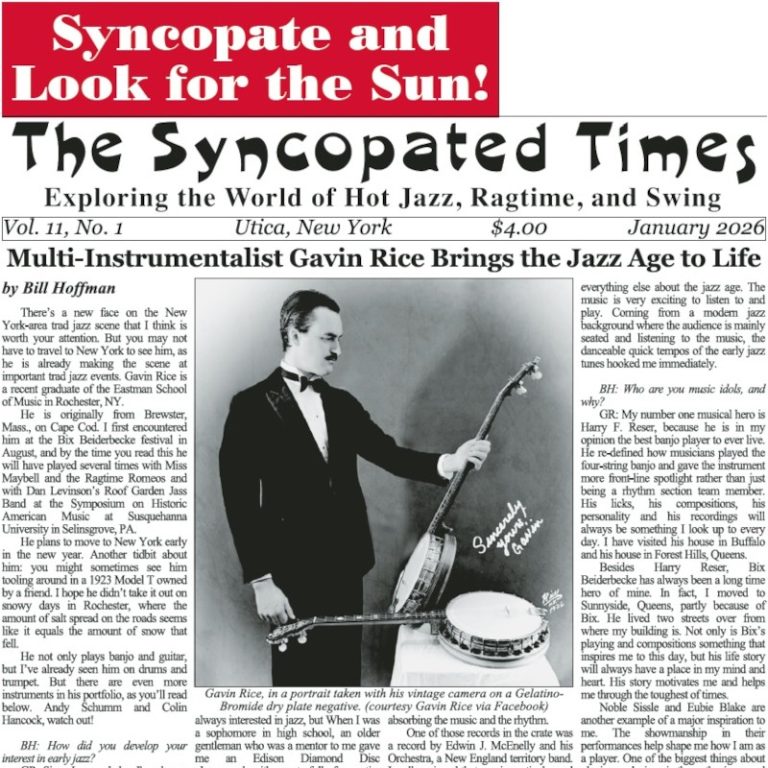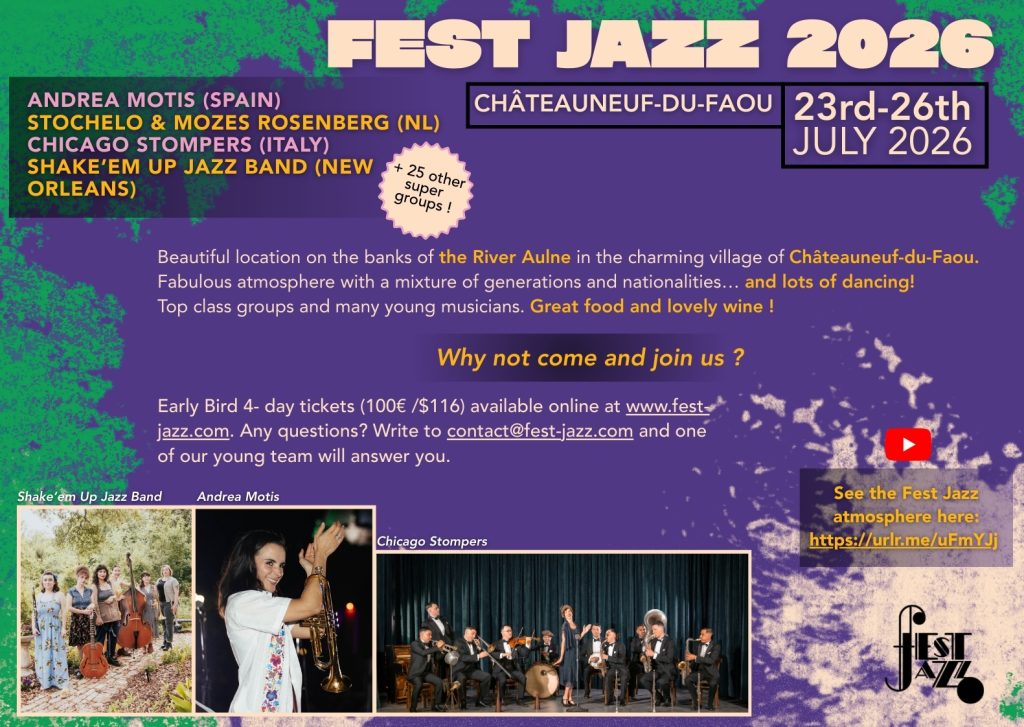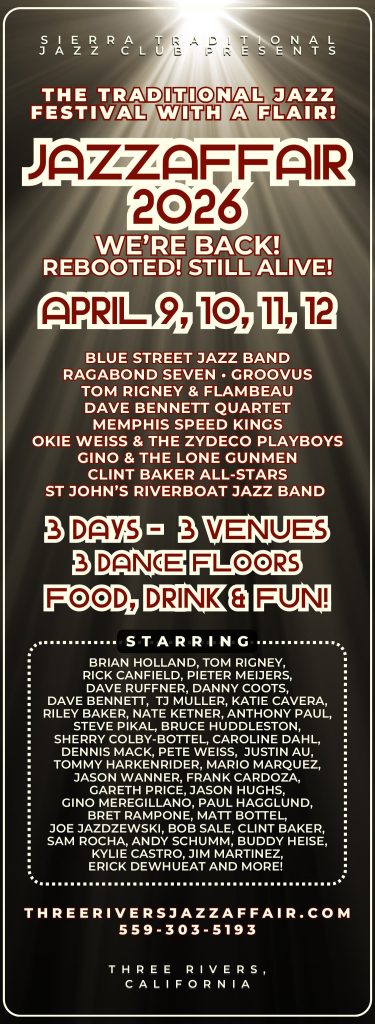The following, by jazz educator Dave Robinson, appeared in our March 2018 issue:
Traditional Jazz needs your voice.
As traditional jazz festivals and regional societies continue to fold their tents, new initiatives are needed that will propel the music forward. Key to its future is the involvement of young people. Important work is being done on that front, such as the various youth trad jazz camps, the Traditional Jazz Youth Band Festival in Sacramento, and the recent national distribution of the Traditional Jazz Curriculum Kit.
The pages of this paper have devoted space to some promising young players in the idiom. But we need to do more. It is time to give this music a strong presence within the largest global organization for jazz, the Jazz Education Network (JEN). Not to be confused with the Traditional Jazz Educators Network (TJEN)—a small mutual-support group I founded for instructors of traditional jazz—JEN has established itself as the trade association for the full spectrum of jazz. JEN’s mission is to build the jazz arts community by advancing education, promoting performance, and developing new audiences. Its huge annual conference is a mind-blowing four days of clinics, panels, merchandise sales, research presentations, and performances by student groups and professionals, including many of the biggest names in jazz.
It’s no secret that jazz education today focuses largely on the later styles, reflecting the dominance of those styles in the jazz world at large, and this has become a cyclical situation. Yet JEN has demonstrated a welcoming stance toward earlier styles. Trad jazz performances and presentations do occur at the JEN conferences (albeit inconsistently), and the recent publication and distribution of the Traditional Jazz Curriculum Kit to 10,000 schools across the country was carried out as a JEN project with the blessing of JEN’s board.
JEN isn’t just for teachers. It encompasses all walks of jazz life—educators, students, musicians, publishers, festival directors, writers, broadcasters—you name it. In an effort to further expand its outreach, JEN has just launched a campaign to bring in Chapters (school-based groups) and Societies. The latter can be existing or new organizations, regionally-based or geographically-dispersed.
Seeing this as an opportunity to galvanize support for the traditional jazz genre within JEN, I have formed the JEN Traditional Jazz Society, which has been officially recognized by JEN as one of its Signature Societies. The JEN Traditional Jazz Society’s mission is to foster awareness and appreciation of traditional (“trad”) jazz (the New Orleans-based styles of jazz and their outgrowths) and other early jazz styles among students, educators, musicians, and audiences. While I formed JENTJS to concentrate on small-group trad jazz, getting more student big bands to perform pre-war arrangements is also important, hence the phrase “and other early jazz styles.” I’ve formed JENTJS with the following goals in mind:
1) Increase the presence of “early” jazz styles at the annual JEN Conference (professional and student performances, research presentations, clinics, exhibit booths, etc.)
2) Promote the concept that trad jazz and early big band styles are not museum pieces, or simply the foundation of something else, but remain relevant, exciting music today
3) Build awareness within JEN of the magnitude and breadth of early jazz
4) Forge a partnership between the traditional jazz community and JEN
5) Encourage student groups/directors to include early jazz in their programs
The initial core of the JENTJS comprises individuals within JEN who are currently involved in the genre, including representatives of the Smithsonian, Preservation Hall, and the Sacramento Traditional Jazz Society Foundation; professional musicians; university PhD’s; and even a member of JEN’s board. We’ve been having online discussions that have generated some exciting ideas—and we want you on board with us. Whether you’re an educator, musician, or enthusiast, we need you as a voice for this music.
It’s up to us to join JEN in numbers and take our seat at the table.





